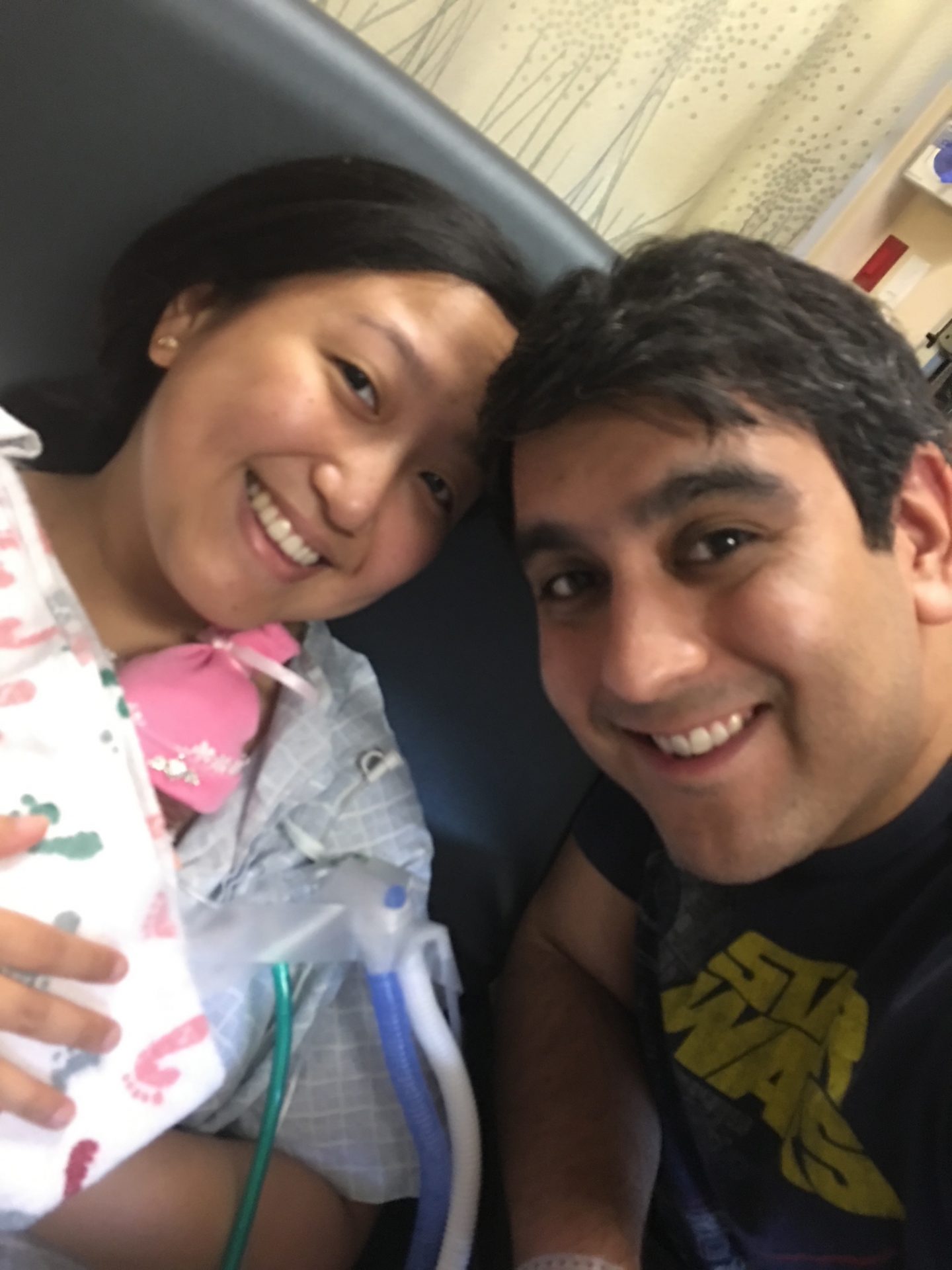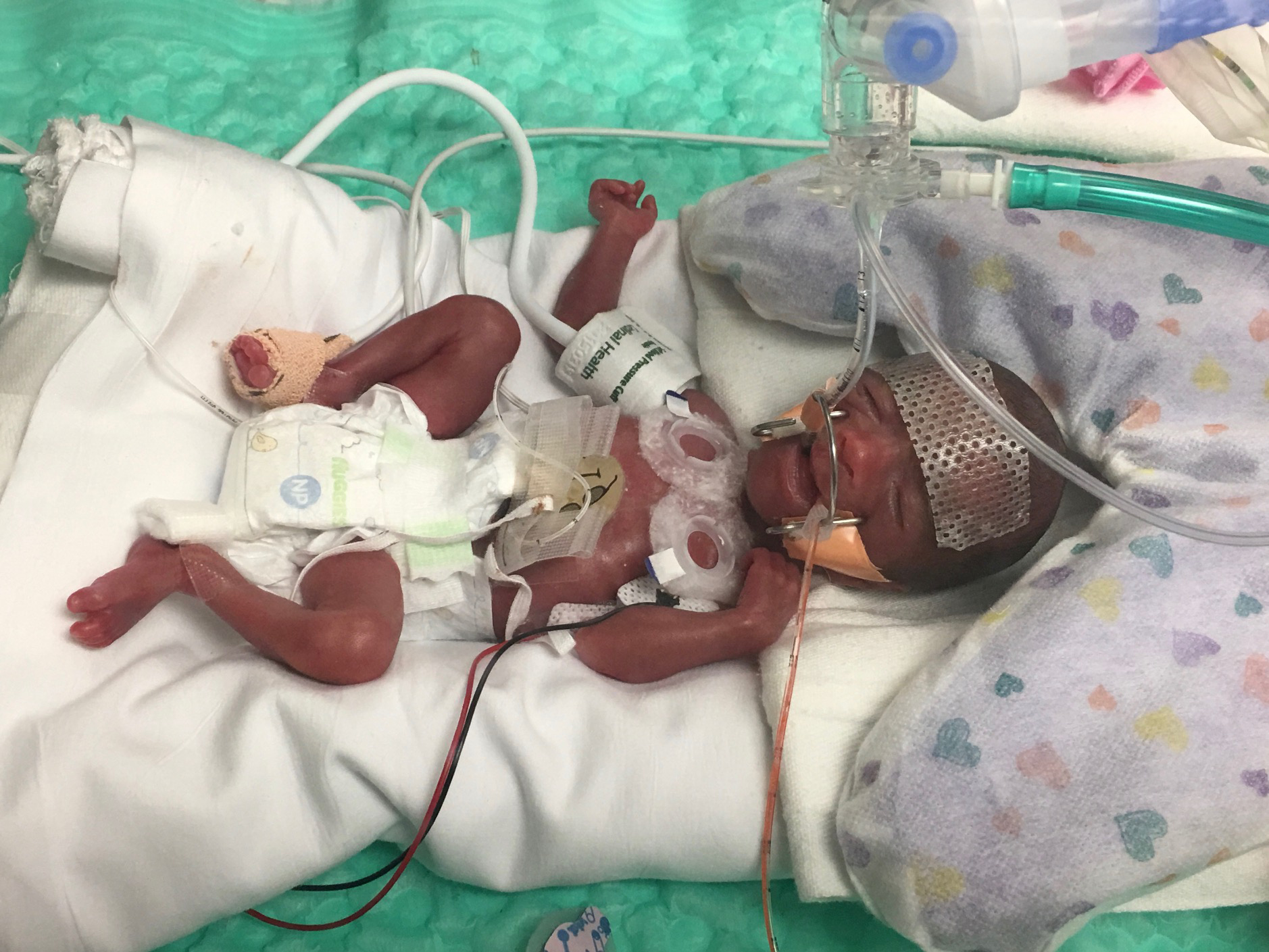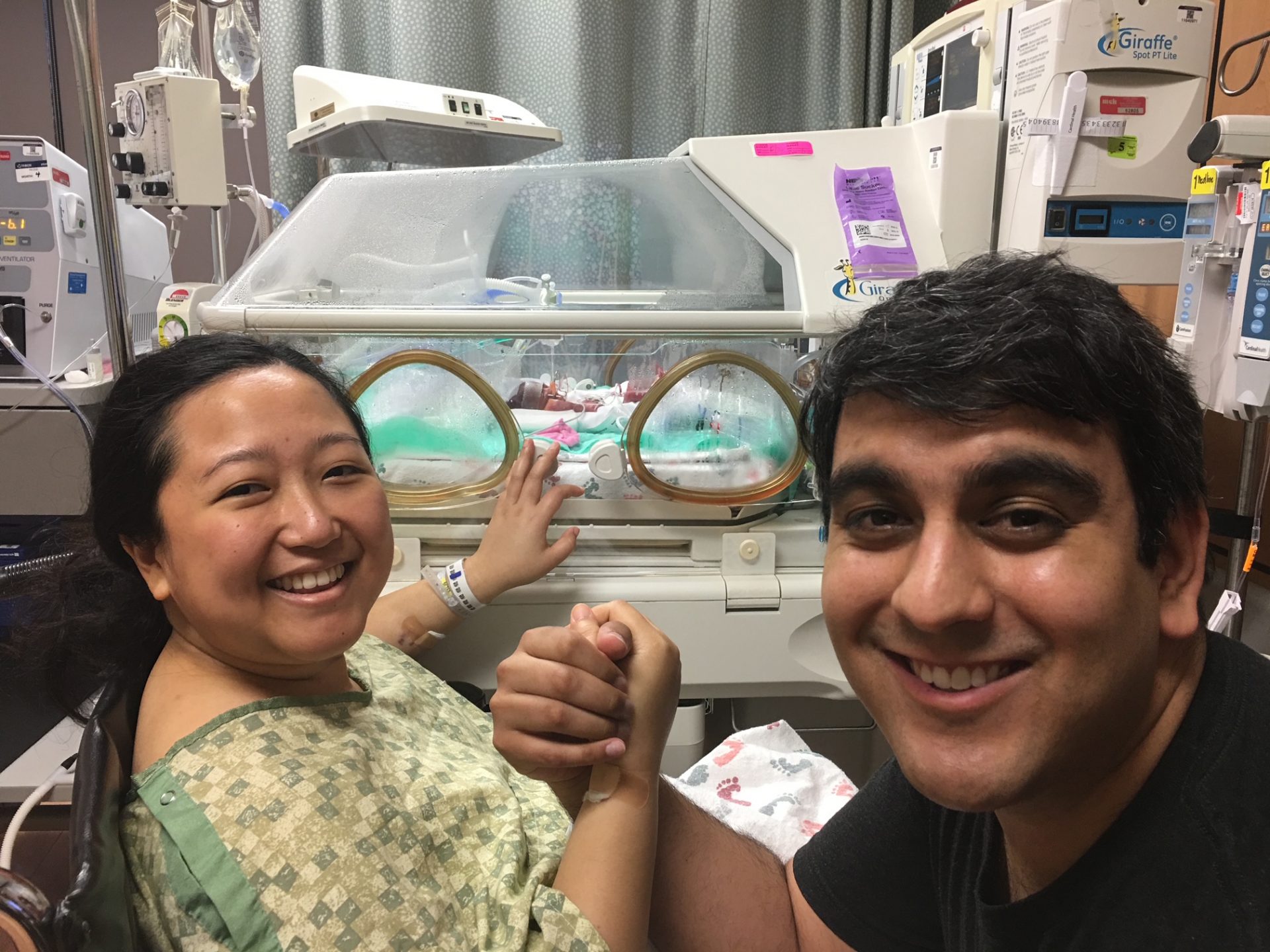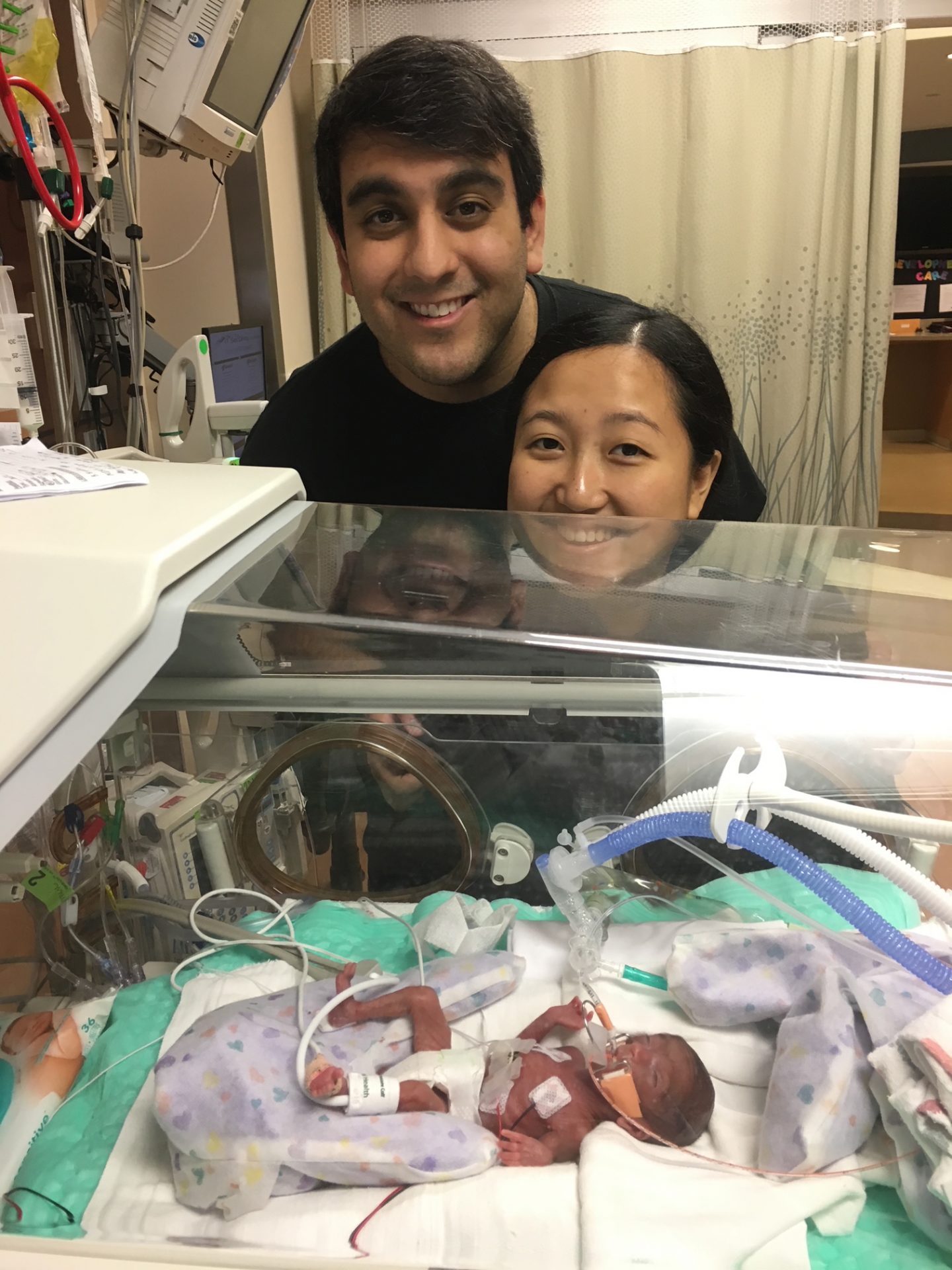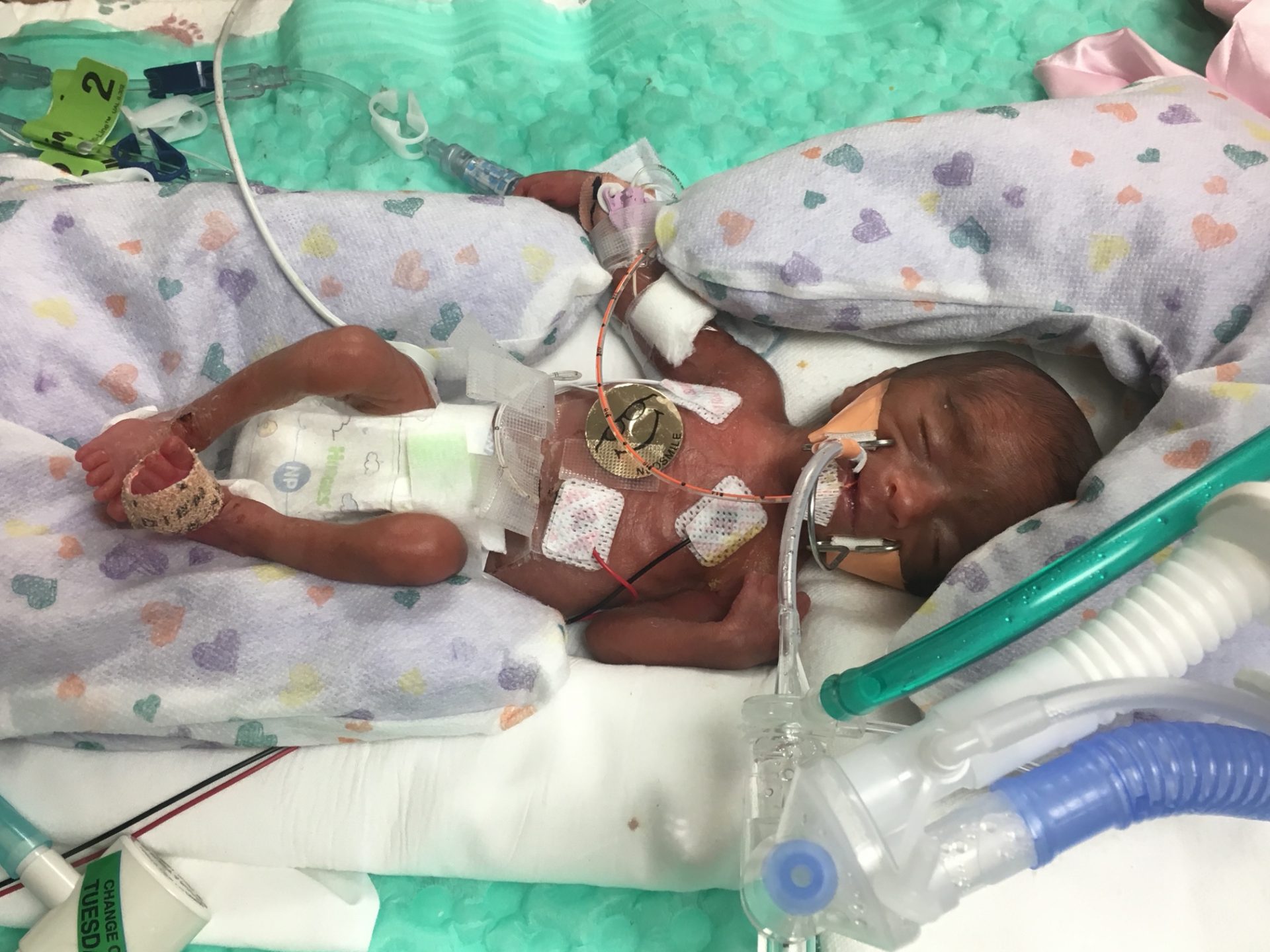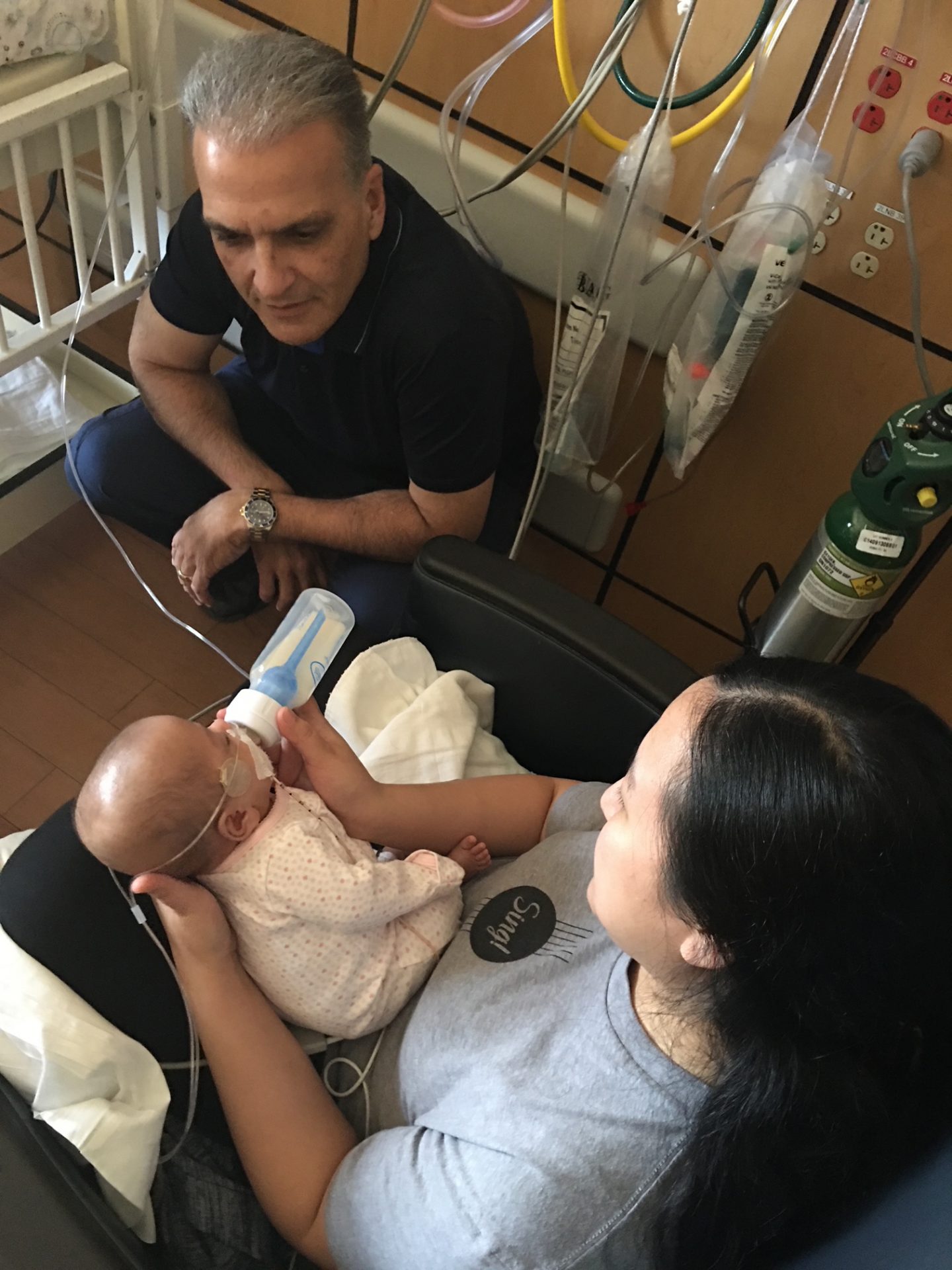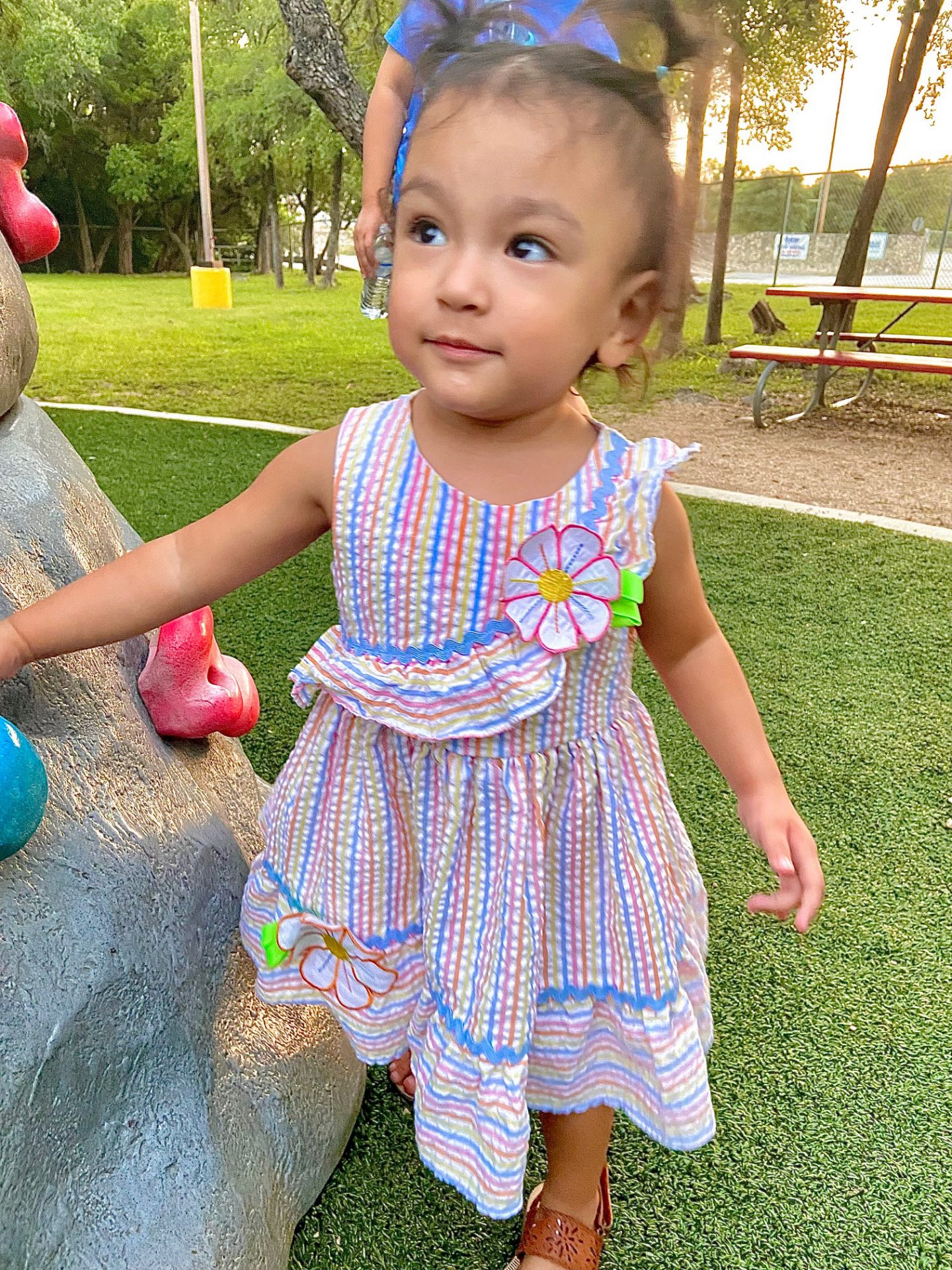She arrived four months early and barely weighed 1 pound at birth. Doctors and nurses at Medical Center Hospital knew the odds of ‘Baby Emely’ Martinez surviving were a long shot, at best. Two years later, the child known as “the miracle child,” continues to defy those odds and not only is surviving, but thriving.
This is the family’s story and the efforts of MCH healthcare workers to save Emely’s life.
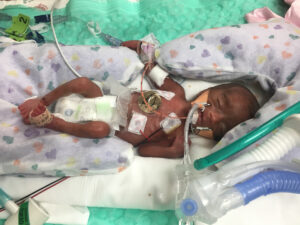
Early Arrival
Two years ago, Odessa’s Rex Martinez woke to the blood-curdling screams of his wife, who was five months pregnant.
Rex Martinez ran to, and opened the door to the bathroom, where he was greeted by a horrific sight.
“My wife, Bianca, was drenched in blood,” Rex Martinez says, his voice trembling as he recalls the memory from 2 years later. “There was blood everywhere. It looked like something out of a horror movie.”
Struggling to keep from going into shock, Rex Martinez stumbled back to the bedroom. He grabbed his cell phone and frantically called his father, Dr. Raymond Martinez, a noted obstetrician in Odessa.
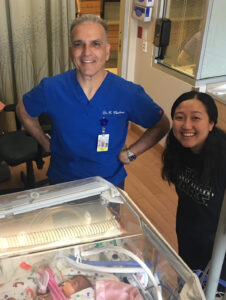
“Meet me at the hospital immediately,” the elder Martinez ordered.
Forty-five minutes later, a weak and dazed Bianca Martinez lay on the operating table at Medical Center Hospital. As her father-in-law prepared to deliver the child, “baby Emely” would wait no longer and immediately popped out on her own, her parents said.
Baby Emely arrived on May 26, 2019 – four months premature and barely weighing 1 pound.
“The nurses at MCH immediately wrapped her in plastic so that the shock from the extreme temperature change – from the womb into the world – didn’t kill her,” Rex Martinez said.
Facing a Nightmare
Many of baby Emely’s vital internal organs, such as her lungs had not yet fully developed, so she was rushed to ICU where a tube was inserted down her throat to keep her breathing. A helpless Rex Martinez could only watch from a distance as his newborn daughter clung to life.
“That’s when I found out Bianca was dying,” said Rex Martinez, his voice choking with emotion as the memories come flooding back. “She wasn’t clotting properly. They couldn’t stop the bleeding.
“(For the next 24 hours) I was running back and forth, afraid that I was going to lose the two most important people in my life.”
Because Bianca was losing so much blood and has a rare blood type, MCH had to obtain the blood from Lubbock, which took several hours to arrive. Working around the clock, doctors were finally able to stop the bleeding and save Bianca’s life.
“Everything was just a miracle,” Bianca Martinez says now. “Despite everything being a disaster, everything kept falling into place. God kept me calm the whole time. I just did whatever the doctors and nurses told me to do.”
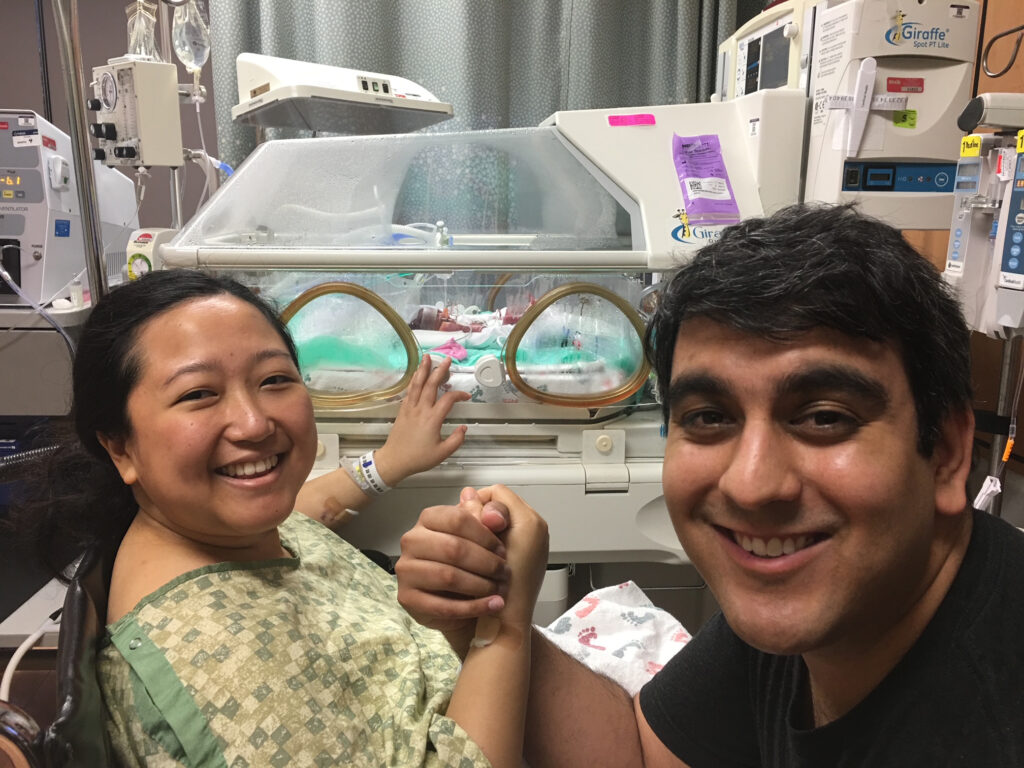
For the next 153 days Rex and Bianca stayed at the hospital’s Ronald McDonald guest house so they could be near Emely as she continued to fight for her life.
“The staff at the Ronald McDonald House was so good to us,” Rex Martinez said. “We are so grateful. We had so much going on, and they would bring us food and help with the little things you don’t think about.”
The Martinez’s credit MCH’s partnership with Children’s Miracle Network Hospitals. CMN provides state-of-the-art care, life-saving research and preventive education for children and their families 24-hours a day, 365 days a year. MCH has raised more than $7 million to help children in the Pediatric Unit, as well as newborns in the Neonatal Intensive Care Unit. One hundred percent of local donations stay in the Permian Basin.
To learn more about the Children’s Miracle Network and how to donate visit tinyurl.com/pxbhe235.
The help and support of MCH doctors and nurses were also vital to helping the Martinez’s get through the next 5 torturous months.
During the day Rex Martinez commuted to his teaching job at UTPB STEM Academy and then rushed back to the hospital to be with his wife and daughter who continued to face life-threatening challenges.
Baby Emely contracted such a severe case of meningitis while at the hospital; doctors had to use a ventilator to pump nitric oxide into her lungs so she wouldn’t die from respiratory failure. The procedure, which has many dangerous side effects, is considered as a last resort option, Bianca Martinez said.
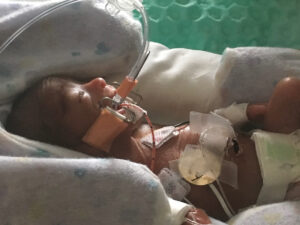
The Martinez’s also had to make the difficult decision of allowing doctors to try experimental medications that the Federal Drug Administration has not yet deemed safe to use. The medications were considered ‘high risk’ because of the many possible side effects; but to do nothing meant baby Emily would grow up blind.
Because Emely had been born so premature, her retinas were not yet developed to where they should have been, Bianca Martinez explained. The stress on the baby’s eyes was threatening to detach her retinas at any moment.
“The risk was that the drugs could affect her breathing and cause irreparable damage to her veins,” effectively making Emely an invalid for life, Bianca Martinez said.
Baby Emely had to constantly fight various infections during her first year of life because her premature immune system was compromised.
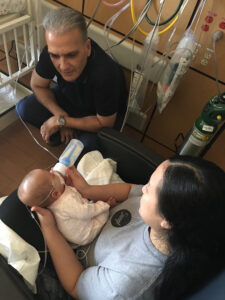
Going Home
After five months Rex, Bianca and Emely went home as a family. For the first year the Martinez’s had to live in isolation due to Emely’s compromised immune system.
“And then COVID hit,” Bianca Martinez said. “Emely hasn’t seen much of the world yet.”
The Martinez’s hope the worst is behind them. They moved to San Antonio one year ago to take advantage of that area’s broader health care services.
Emely, who is now 2 years, and 3 months old, meets regularly with speech, occupational and physical therapists who help her continue to physically and mentally mature.
She now operates at the level of a ‘normal’ 23-month-old, Rex Martinez said.
The biggest challenge the Martinez’s face is trying to teach Emely how to eat solid food. After living with a tube down her throat during the first 5 months of her life, Emely doesn’t like anything in her mouth, her mother said.
“At first she didn’t like to eat solids, or take a bottle,” Rex Martinez said. “She doesn’t like hard foods like meat.”
Bianca Martinez adds: “She used to gag just at the sight of food.”
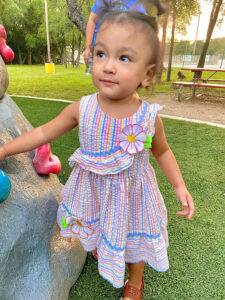
Little Victories
Last week, Emely ate her biggest meal yet – some rice, and steamed carrots and tomatoes. She briefly licked a piece of meat before pushing it away with her tongue and spitting in disgust.
“Today was a big victory for us,” said a pleased Bianca Martinez, who couldn’t suppress a laugh as her daughter made it clear she wasn’t ready for meat quite yet.
“She already has a strong personality,” Bianca Martinez said. “She knows what she wants.”
Rex and Bianca Martinez just want their daughter to feel safe and healthy.
“She’s doing well,” Bianca Martinez said. “She loves to give hugs, and dance and sing. She loves looking at books and is very inquisitive. She’s already learned her A-B-C’s.”
The Martinez’s said they’ve wanted to share their story for some time, but were overcome with emotion on previous attempts. This time Rex and Bianca didn’t try to suppress their tears and emotions.
“If our story can inspire, even just one person, then it’s worth it,” Rex Martinez said. Emely is doing fantastic despite all the problems.
“She’s a miracle story.”
How to help
Through MCH’s partnership with Children’s Miracle Network Hospitals, CMN provides state-of-the-art care, life-saving research and preventive education for children and their families’ 24-hours a day, 365 days a year. MCH has raised more than $7 million to help children in the Pediatric Unit, as well as newborns in the Neonatal Intensive Care Unit. One hundred percent of local donations stay in the Permian Basin.
To learn more about the Children’s Miracle Network and how to donate visit tinyurl.com/s533k7nb.


